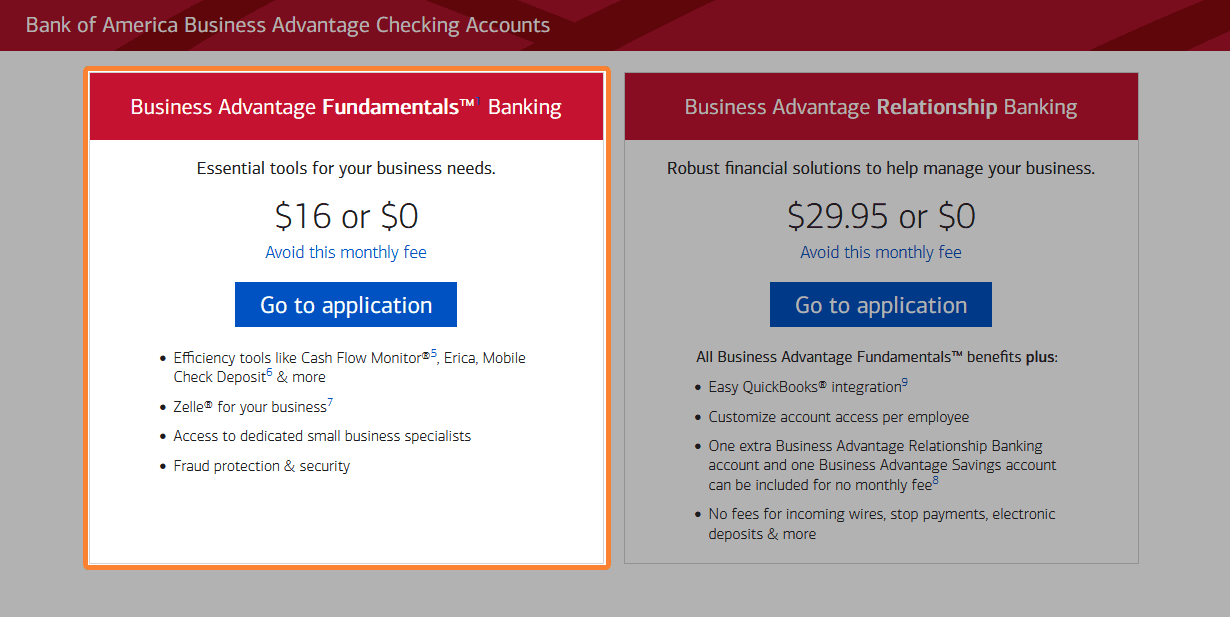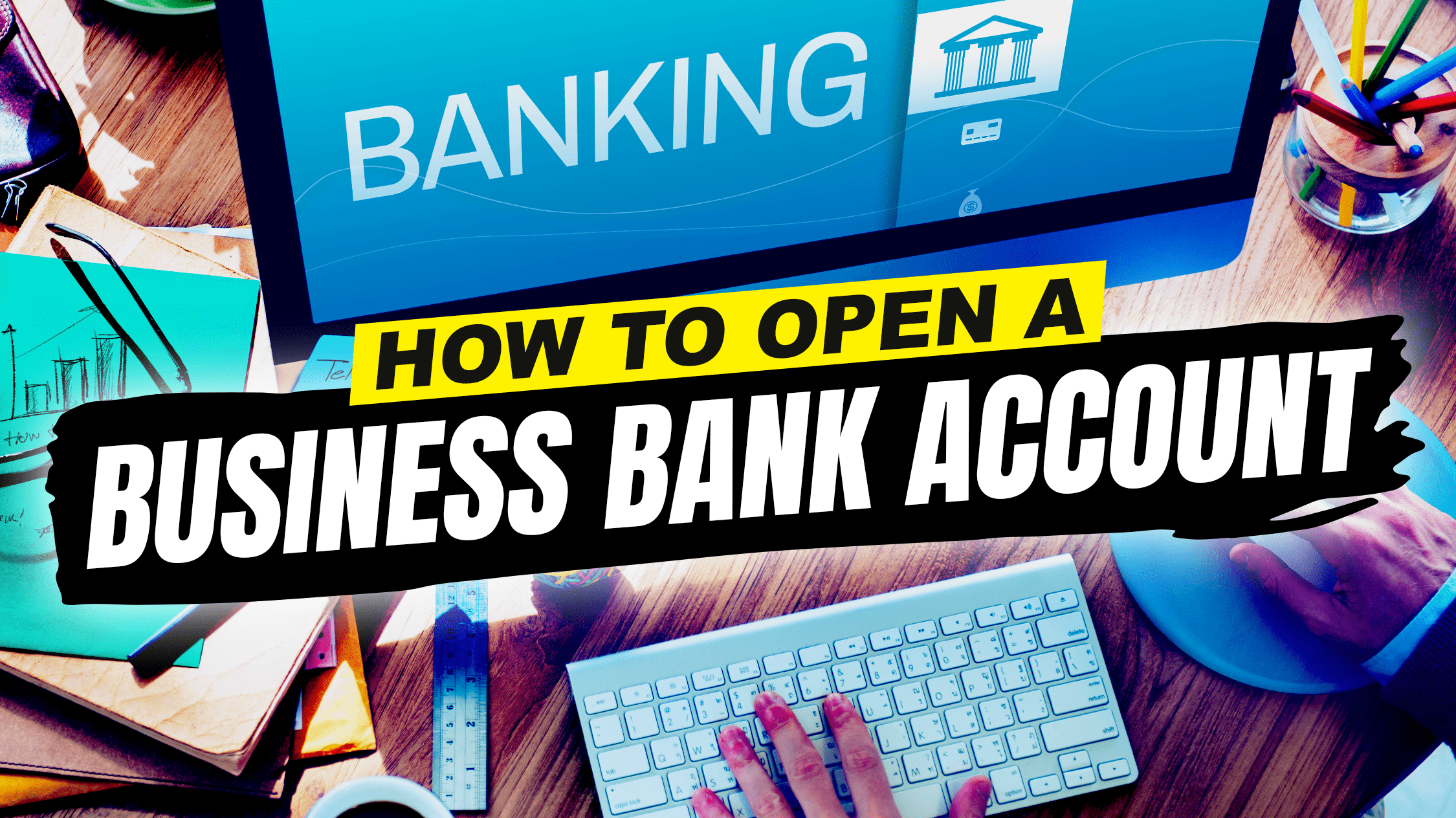Want to know how to earn up to 14% on your holdings with business banking? We’re going to show you how, plus all the other considerations you’ll have when you open a business bank account.
We’ll help you understand why you should open a business bank account, what you need to open a business checking account for each type of business structure, how to choose the right bank account for your business, and introduce you to some of the best business bank accounts.
Once you are done with this article you should be ready to open a business bank account online. Let’s start with the reasons you’ll want a business bank account.
Step 1. Reasons for starting a business bank account
You’ll want to open a business bank account for the following reasons:
- Separate your business and personal finances
- Easier tax filings
- Customer purchase protection
- Build small business credit
- Develop a relationship for better banking services
We’ll look at each of them to help you better understand how they impact business.
Separate your business and personal finances
You need to have separate personal and business accounts If you are running a:
C-Corporation, Non-Profit Organization, or other business structures that are considered a separate entity, . If you do not, it is possible for courts to consider the business and yourself the same entity. If you’d like to learn more on that, read about 8 case studies that pierced the corporate veil.
Keep reading for more benefits of opening a business bank account.
Easier tax filings
Another benefit of opening a business bank account is that it makes filing taxes easier. I’ve made the mistake of keeping my business funds in my personal checking account, and it makes finding all my earnings and expenses nearly impossible. The ease of tax filings is probably the best reason to open a business bank account.
Keep reading for other reasons to open a business bank account.
Customer purchase protection
Business bank accounts have additional features that personal checking accounts do not offer. One type of business bank account that people can open is a merchant account. A merchant account will issue customer refunds even if you don’t have the money in your business checking account to cover it.
A good refund process helps improve your experience when a customer doesn’t get the product, the charge was fraudulent, or the product was defective. It will charge the company a chargeback fee and can raise processing rates if there are too many. Check out the blog about chargebacks to learn more
Build small business credit

A small business checking account can be a stepping stone to lines of credit for small businesses. If you have a business checking account, your business can qualify for Net-30 vendor loans that will start to build your small business credit score.
In addition, the bank will be monitoring your account to see what services they think would be good for your business. If you receive an email or mail from your bank inviting your business to apply for a credit card, line of credit, or other services, that probably means you’ll qualify.
Keep reading for another benefit of opening a business checking account.
Develop a relationship for better banking services
Opening a business bank account accomplishes two major business goals:
- Develop a relationship with a preferred lender.
- Develop personal relationships.
The two of these go hand in hand. It’s normally better to interact with a bank before asking it for a loan. While they will attempt to work with you, they will work harder for you if they like you. My sister and her fiance have an extraordinarily high success rate in home offers and finances because of how they manage the human aspect of the business. The same can go for banks.
In addition, you never know who you’ll meet in a bank. Relationships are crucial to getting ahead in business, and financial contacts are some of the best to have. They understand their business better than most and know how to break it down so it makes cents (pun intended).
Go into the bank and be friendly with the people waiting in line and those helping you. Make sure to have business cards on you. I have gotten customers this way. You can too!
Those are the reasons to open a business bank account. Let’s look at what you need to open a business bank account online or in person.
Step 2. What do I need to open a business bank account?
There are normally three requirements to open a business bank account. The most common business bank account requirements are:
- Proof of your identity
- Business documents
- The minimum funds to start a business bank account
Let’s start by looking at the personal documentation.
What personal documentation is required to open a business bank account?

Like a personal checking account, setting up a business bank account will normally require two to three forms of personal identification. Credit and debit cards normally work at banks in Nevada, Michigan, Florida, and Texas. You’ll have to check with the individual bank in other states. You’ll need to provide or know:
- Your name, birthday, and social security number
- Contact information including address
- Proof of ownership percentage
- A government-issued photo ID, such as a driver’s license or passport
In addition, you’ll need documentation of the business as you gather what you need to open a business bank account.
What documents are required to open a business bank account?
When wondering how to open a business bank account, you’ll have to get your business documents ready. If you haven’t already chosen a business structure, applied for an EIN, and registered your business license, you’ll need to do those first. We’ll cover what you need to have when opening a business checking account for:
- Sole proprietors
- Limited Liability Companies
- Corporations
- Partnerships
Check out our how to build a business article if you haven’t already started your business.
Sole Proprietorship or DBA Checking Account
Most business checking accounts will require the following documents before they will allow you to open an account for a sole proprietorship:
- Business name and DBA if applicable
- Business location address
- Employer identification number, or EIN (Some banks will let you use your social security number.)
- Industry of business
- Business name registration certificate
- Business license
Can I open a business bank account without an EIN?
Whether you can open a small business checking account without an employer identification number depends on the financial institution if the account is for a sole proprietorship or single-member LLC. You don’t need an employer identification number unless you are hiring employees because the business income is considered the owner’s personal income.
If you are opening other types of businesses, you will need an employer identification number, especially for corporations because the owner counts as an employee.
Next, let’s look at what most business bank accounts require for limited liability companies.
Open Bank Accounts for LLC

Limited liability companies will need the following documents when applying for a business account:
- Business address.
- Employer identification number. If it is a single-member LLC, some banks will let you use your social security number.
- Industry or type of business.
- Articles of organization, LLC operating agreement, and business license.
- Multi-member LLCs will need the personal information of all owners that own over 25% of the company. Bank of America has a useful guide by zip code of what you need for each type of business. Check your area at the bottom of the page.
Keep reading for what is needed for an incorporated bank account.
Opening Bank Accounts for Corporations
Corporations will need some unique documents, primarily the articles of incorporation and corporate bylaws. Small business owners will need to provide a variety of business documentation to open a corporate account. The most common documents are:
- Business address
- Employer identification number, or EIN
- Industry or type of business
- Articles of incorporation, corporate bylaws, and a business license
Because a C-corp is a separate legal entity from the people involved, it is necessary to receive payments and pay vendors from a business checking account. If you mix personal funds with business funds, you risk nullifying the liability protection of the business.
Keep reading to learn how to get a business account for a partnership.
Open Bank Accounts for Partnerships
Partnerships will need the following documentation when opening business bank accounts:
- Personal information for all partners with 25% ownership or more
- Business name and DBA or trade name (if applicable).
- Business address.
- Employer identification number, or EIN. (Sole proprietors and single-member LLCs may be able to use their social security number).
- Entity type and industry/type of business.
- The partnership agreement, business name registration certificate, business license, and state certificate of partnership.
Now that you understand what documents you need to open a business bank account, let’s look at the features and types of small business bank accounts.
Step 3. Choosing the type of business bank account you want

Before discussing how to start a business bank account, we should discuss the features and types of accounts that are available to small businesses. There are four main types of accounts:
- Business checking account
- Business savings account
- Merchant Account
- Credit Card Account
Let’s start by looking at features.
Features of business bank accounts
When choosing an account, be sure to consider the following questions and how important they are to you:
- Is there a monthly fee? If so, how much per month?
- What are the minimum balance requirements?
- Are there limits or transaction fees on withdrawals, deposits, or other transactions?
- Is there ATM access and what are the limits on it?
- What wiring, transfer, and payment capabilities are available? How often will you use them, and are there restrictions or fees for those financial services?
- What are the incidental fees for items like stop payment, nonsufficient funds, and overdrafts? This item is really important because cash flow can be unpredictable during the early stages of a company and during certain times of the year.
- What online and mobile banking features are available? App? Mobile check deposit?
- Do they have additional features that matter to you like automatic bill pay and invoicing?
- How easy are integrations with other business tools? Warning: online banks like Varo and Chime have some great personal interest rates, but they often poorly integrate with Plaid, which is a common way of connecting banks to other platforms. Be careful with strictly online banks.
- What money management tools does the bank offer?
- What are the interest rates? Are the interest rates tiered?
- What are the rates and perks on their credit card accounts? Are business credit cards better than personal accounts?
- Are personal bank accounts better for your needs? If so, pass-through income businesses can open a separate checking account and use a personal bank account with a separate.
- payment processor
- Where is the nearest bank branch to you or your business? This will matter if you accept cash or cards.
Now that you know some of the considerations when choosing an account, let’s look at the main types of accounts.
Why You Should Open a Business Checking Account

I’m assuming anyone who is a business owner has opened a personal checking account before. A business entity can get a checking account with similar features. They are virtually the same thing, but you can add merchant services, employee business debit card purchases, and integrations with other companies’ software on a business account that you cannot add on a personal checking account.
Reasons for Opening Business Savings Account
A business savings account is intended for long-term savings. A savings account for business may have higher interest and higher minimum business deposit balances than personal savings. The Federal Reserve suspended Regulation D requirements of six or fewer transactions in a statement cycle during the pandemic, but at some point will probably reenact them.
You can use the savings account to:
- Earn interest
- Save business profits
- Transfer your earnings on a weekly basis
- Save for major business purchases
- Overdraft protection
- Save for taxes
Let’s look at a special type of business account that is for handling credit card payments.
Consider Opening a Merchant Account
A merchant account is sometimes referred to as merchant services. Merchant services are a special type of account that can be used to accept credit card payments for businesses. You’ll need a business checking account to open merchant accounts. These services are often comparable to Paypal or Stripe business credit card processing, but will vary in four primary ways:
- Typically, Paypal and Stripe offer more features than merchant services.
- Merchant services will normally have fewer transaction fees than Paypal or Stripe.
- Merchant services will normally have tiers where higher transaction volumes (in a number of transactions or dollars per month) come with lower transaction fees.
- Merchant services may require a credit check, while Paypal and Stripe do not.
Step 4. Which bank is best for business accounts?
Choosing the best bank for business is a matter of personal preference. Instead of telling you which ones are best, I think it makes sense to tell which ones are best at a certain aspect of banking. Honestly, all the choices are bad. You can either have:
- A truly free account with no monthly maintenance fee and not be able to deposit cash easily
- Cash payments at a physical location and a monthly maintenance fee
- You have to choose between the two unless you plan to have $5k-100k sitting around at all times, which I hope you don’t because that should be earning interest.
Because of the trade-offs that business bank accounts require, my suggestions are going to be way different than normal.
Lending Club

LendingClub is probably the best of the options I’ve seen if you are comfortable with handling everything related to your account online. It’s about as close to what the legacy banking system offers, but with online banking pricing fees. Unfortunately, you don’t have a bank branch near you, but the costs are far less than most legacy banks.
Novo
Novo is an online bank with no monthly fee, no minimum balances, seamless integration to all the major sales platforms, and $5,000 in discounts for small business owners to use with other apps like Google Ads, Gusto, and Snapchat. No physical locations for cash deposits.
BlueVine
BlueVine is another great candidate for online banking with a .6% interest rate on accounts under $100K, and easy lines of credit as long as you have six months in business, $10K/month revenue, and a 600 or higher credit score.
Your local credit union
You should bank with your local credit union if you have to pay a bank $10-$35 per month and haves:
- Additional fees every time you deposit more than $10,000 per month
- Additional fees if you have more than 50-350 transactions per month
- 0% interest earned on checking accounts
- 0.01% interest earned on funds in savings accounts
At least going with a local credit union keeps the profit in your hometown or state. With the major banks, the profit is going straight to the CEO, Berkshire Hathaway, and Blackrock Inc.
Big Banks
I’m required to mention Business Advantage from Bank of America for SEO purposes because it is the best of the worst business account offerings. You have to keep $5,000 in the account at all times or pay $16 a month.

You can also earn up to $.04% on $250,000 over the course of a year. That’s $100 interest for letting them loan the money to other people. Super awesome! Seriously though. Stay away from the big banks.
Crypto.com
I can make $100 in interest on $1,666.67 in a year. On $250,000, I can make $25K interest. They have debit cards and payment processors too.
Use an online bank for checking accounts and crypto.com Flexible USDC or USDT accounts for savings. They pay up to 14% depending on how much you hold in their coin CRO and how long you lock it up. They offer flexible, 1-month, and 3-month terms.
You’ll make way more money off the money you leave sitting around.
Conclusion
Honestly, I’m torn between wanting the service that can only be given with in-person interactions and the far better value of online financial companies. If you are too, I suggest you remember that the legal responsibility of a company is to make its owners money and go with an online bank.
This article has explained how to open a small business bank account, the types of accounts available, and some of the better options available. Where did you decide to get your bank account, and are there any we should feature when we update this post?




